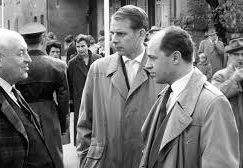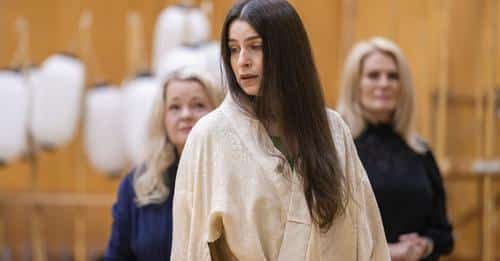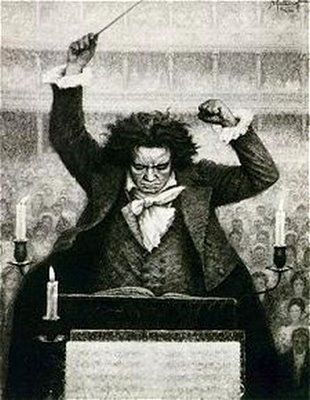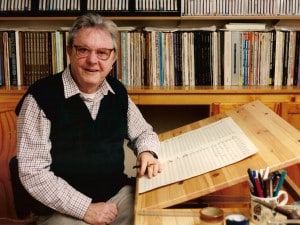Dear Alma, They’re making me play new music…
OrchestrasDear Alma
I play front desk in an international orchestra. Here’s my problem: I love listening to a lot of new music but I hate playing it.
Is that me, or have composers forgotten how to write for strings?
Love your answers
Brat-shy
Dear Brat-shy,
Yes I get it. It can sound tremendous from the outside, but feel – I don’t know – somehow inconsequential, trite, shallow, trying too hard, and sometimes just too awkward to get my fingers around. I have rarely played a contemporary piece that moves me as much as the good old standards. Give me a Langsamer Satz any day over a “@&):(&-@:)! Let me cry my eyes out and search for the magical colors.
That being said, I regularly play living composers, working with them and discussing their works and the world in general. I have been touched by their individuality, their wide ranges of experiences. Some are passionate about the environment, some are breaking through gender walls, some are introducing ancient techniques and sounds into a modern world.
I have played several which have changed me, have moved me and challenged me and given me thought, that stick with me for weeks or months.
Brat-shy – we agree that without the variety in a program, the entire concert can feel heavy or dead. And, it’s important to support our living composers. So what to do about the feeling inside the piece. The seemingly lack of care for our individual instruments, the subtleties and missed opportunities? I guess I just try to float above it, and put myself in the audience. Listen from without. And be happy with the recent wealth of new and passionate (in their own, individual ways) voices which lend a wider sound world to our orchestras, which can always do with a bit of the new.
Questions for Alma? Please put them in the comments section or send to DearAlmaQuery@gmail.com






A string player in major orchestra tells me he loves modern music because he doesn’t have to practice as hard since no one will know how it’s supposed to sound like or when a mistake is made.
I know of a soprano who was asked to substitute on the last minute for a role in an oldfashioned, run-of-the-mill modernist opera. I don’t want to name names, but it was (redacted). She worked day and night to master the part, which consisted of disconnected notes all over the place. I don’t want to spill the beans, but the work in question was (redacted). At the rehearsels, the composer was present, the hughe score on his knees. The soprano knew she was singing wrong notes, and at places she lost it completely and simply improvised herself through the mist and acted appropriately. The composer appeared to have not noticed this at all and applauded happily. At the premiere she could not get it better, and she was embraced and kissed passionately afterwards. Back at her hotel, she told me, she got depressed – if even the composer could not hear any difference between right and wrong notes, why making an effort?
Also a pianist like (redacted) well-known for her advocating modernist pieces by – among others – Birtwistle, simply bluffs her way through the complex scores, as became apparent by a page turner who was asked to substitute for the initially-asked one who got sick, and who happened (the new one) to be a composer himself, and saw and heard the many differences between the score and what was heard.
This odd phenomenon is baked into the very fabric of modernist sound art: who can tell if a certain effect is meant or just ‘happened’? And the unintentional effects may be as interesting, beautiful, irritating, or indigestion-invoking as any other effect. It is the overall impression that counts, not anything remotely related to ‘right’ or ‘wrong’. So, it would be unfair to criticize such works on being or not being correctly performed, because that is irrelevant.
From the photo of young K.S. and P.B. I gather you think the music of seventy years ago is “contemporary music.”
Yes – we do t need personal satisfaction from every single piece we play in an orchestra. Some things are for audience and some for us.
It’s a job. Some things you will like and some not. That’s life.
I agree. My current job is as boring as the one in the toilet paper factory where I had to wind-up all those equally stupid rolls, but I’m paid better now. I’m regularly fired here, but otherwise I’m happy with the pay cheque.
Sally
I am so sick of the old music. I’m the audience I want to hear something new and interesting. It makes me want to go to a concert when I see a mixed program.
Yes that’s what I have all the time, why all that old stuff? These guys are dead for ages and that’s how it always sounds, when I have to go to a classical concert I feel like being at a funeral of the same corpses being burried again and again.
Sally
I feel your pain. Those old Dead, White, European Males knew how to write parts that were enjoyable to play. Every instrument gets a chance to shine. They knew how to write for different instruments. Mozart, Haydn, Beethoven, Brahms, Dvorak, Mahler, Tchaikovsky — that music is fun to play, speaking as a bassoonist. But then out comes stuff like Short Ride in a Fast Machine and it’s just repetitive, boring, and mind-numbing. Anything by Glass is the same. I’ve played very, very little modern music that makes you want to practice.
Good idea to put yourself in the audience’s space, helps to distract from the music that you don’t like.
I am a 73 yr old composer that hardly anyone knows about. How does one break into being heard? Does quality matter, or is it all in who you know? Does the dream really always rise to the top, or is it all marketing? And do up and coming young composer’s trump old unknowns like myself? Serious question.
Of course it’s all about marketing, and being supported by your teachers, and the contacts in the new music establishment which you butter-up. The difference between the new music networks and the reality of the concert practice is immense and not noticed by most people.
The only way to get heard eventually in the reality of concert life, is to write music which aesthetically can be related to an average accessibility as cultivated in concert life, and then to try to interest professional players. All other routes lead to nothing, even if they appear to be successful at first.
All right. I missed something along the way. Who is ALMA? I thought at first it was a reference to Alma Mahler. But I guess not! 🙂
I know who it is, a renown psychotherapist who even cured (redacted) from his (redacted). I have an aunt who suffered from classical music anxiety as an audience member with panick attacks every time she sat on a balcony seat at the right side of the hall, and she was cured after only 7 months. Here is her address: (redacted)
Sally
Some times an evening of new music is better than the sandwich we find in most concerts – 19th and early 20th century pieces book ending something new. I actually feel sorry for living composers always be compared to those before them. This way, their work is appreciated with other like minded pieces.
??
There is an enormous variety and difference in the regular repertoire. Classical music before modernism was a language, which composers used to ‘say’ something personal, and that made them original. Underneath the dynamics of the material were more or less the same, like Monteverdi’s use of tonality being comparable with Wagner’s and Stravinsky’s.
That quite some contemporary composers write badly for strings, or for ANY isntruments, is due to the educational trajectory: at the universities and conservatories, education in the ‘composition courses’ is more often than not a matter of theory, ideology, or how which notes (if there are notes to be distributed) are placed, but hardly anything about a) the workings of the concert world, b) the fragile ‘artistic contract’ between composer, players and audience and c) the feeling of players in their relationship with their instrument which is defined by a more than 250 years old tradition of the utmost sophistication. With the strings that is even more urgent than the winds because of the ‘unnatural’ position of holding the instrument and the intricate movements of fingers and arms.
Really?
You write, “I play front desk in an international orchestra. Here’s my problem: I love listening to a lot of new music but I hate playing it.”
Really? I can’t imagine you’re really a front desk player and asking such a whining, unprofessional question on this “dear alma” site.
Are you 12?
This is the very reason I decided that orchestral playing was not for me. I did something else instead.
most “new music” is like most modern art: a complete fraud
on a bunch of pompous, pretentious people.